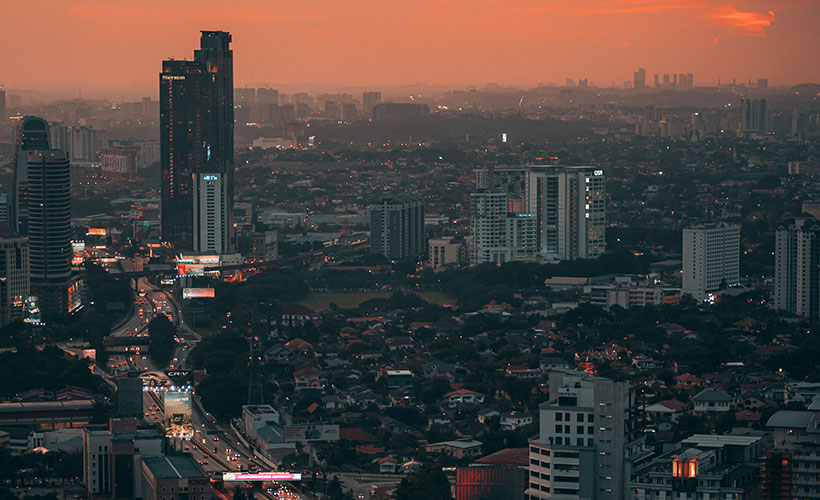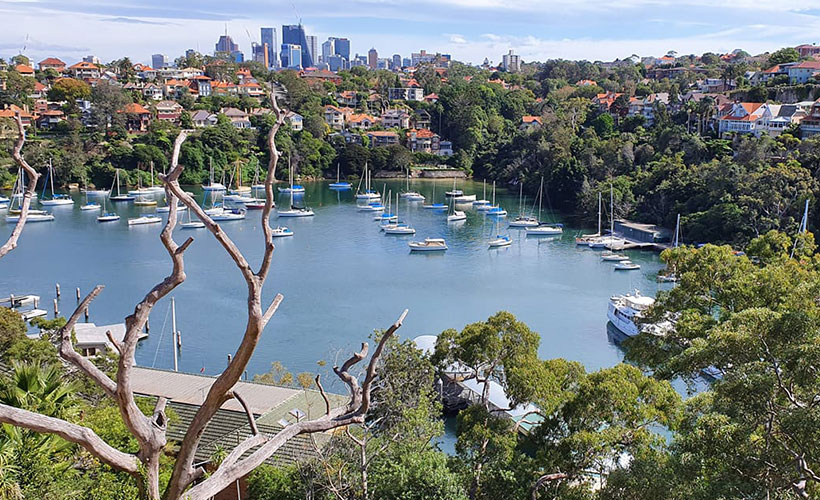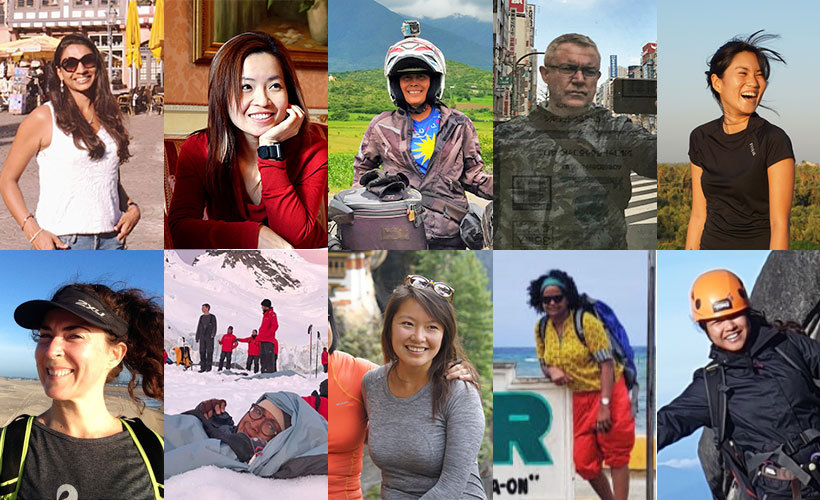
As travellers, we used to take journeys across rivers and oceans to see the world, to seek a sense of belonging and purpose. Now, the COVID-19 pandemic has forced us to be dwellers in our homes, and take inward journeys of self-reflection instead. With the uncertainty and unrest that looms over us, our wanderlust mode has turned to survival mode, and it can be hard to see the light at the end of the tunnel.
We are here to remind you that there are still silver linings in the clouds above us. Take comfort in knowing that no matter where you are in the world, our cultural and geographical environment might differ, but our shared hope and resilience is very much the same.
It is in this spirit of togetherness that we bring you this continuation of #ZafigoStories: Humans Of Lockdown. We reached out to our community of women travellers from around the world to share their unique experiences, to show you that while your life might not be comfortable right now, there is still much to live for and look forward to.
“Where in the world are you self-isolating, what is the situation like, what are you doing to cope, and where do you plan to go after the pandemic?” Everyone has a story and we want to hear yours. Share your story with us via DM, or tag us in your story using the hashtag #ZafigoStories #humansoflockdown.
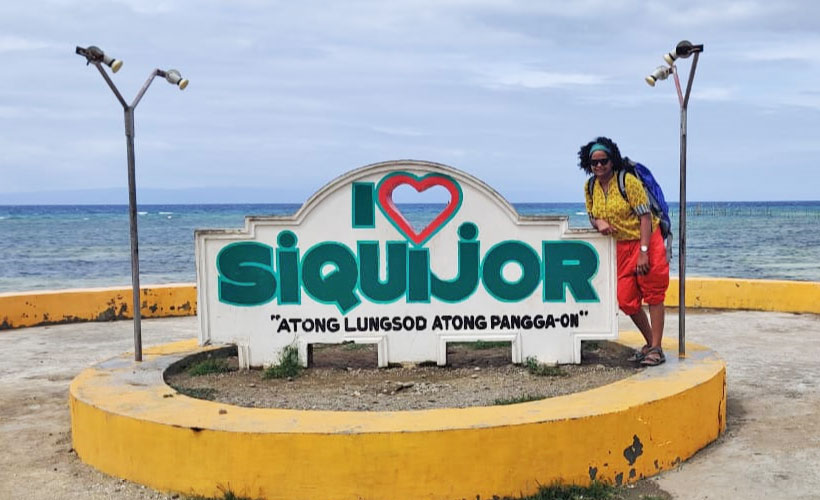
Himadri Garg, media planner and author
Where are you from and where are you currently?
I am Himadri Garg. I work with a boutique digital agency as the Director of media planning. Based on my travel tales, I have written a book called Ghoomophiro. I’m from India and currently residing in the capital city of Delhi. The country has been under lockdown since 22 March.
What is the situation like where you are?
Though the number of cases is increasing, we hope this will pass soon.
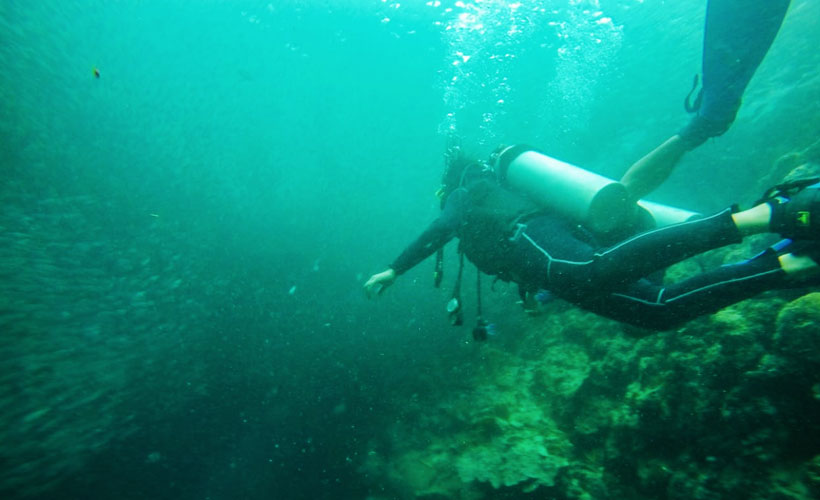
What are you doing to cope during self-isolation?
I have been working from home, spending time reading books, and focusing on my fitness. The Pandemic has taught me to take life as it comes. I have been able to photograph birds I normally wouldn’t see before. Workwise, there’s been no impact.
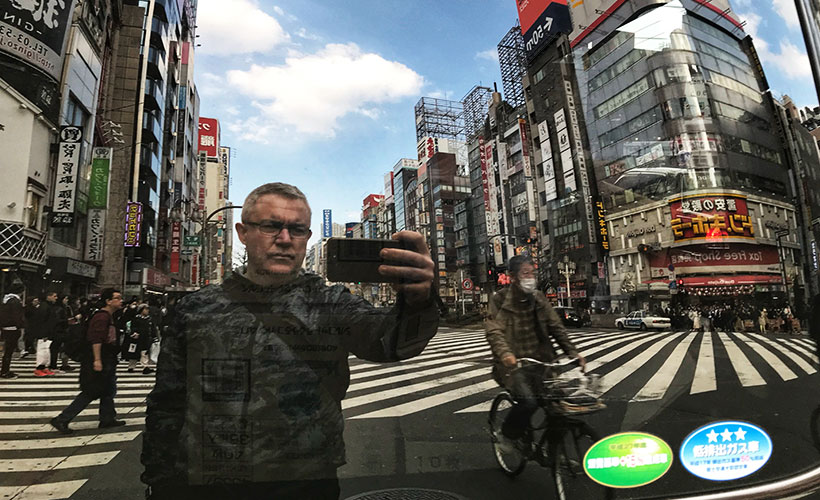
Brendan Ó Sé, photographer
What’s your name and what do you do for a living?
Brendan Ó Sé. I am Head of Development in the Language Centre of University College Cork, Ireland. I’m also a photographer.
Are you currently in isolation?
I am from Cork and currently at home here. We went into lockdown on 13 March and we are in phase one of restrictions being lifted. The situation is good, all things considered. The Irish government has coped well with the crisis and people have been compliant in supporting each other to get through this.
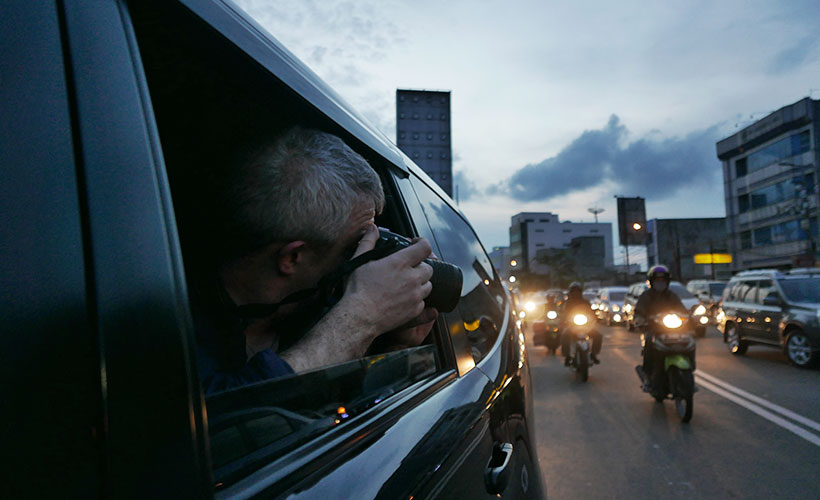
What are you doing to cope during self-isolation?
I have been working from home since we went into lockdown. Life has been peaceful and happy at home with family. We are very fortunate.
How has the pandemic affected you?
Travel plans mainly. I was due to visit South Korea, Japan, Norway, Greece, Turkey, and Bulgaria over a period of five months or so, and all that has been cancelled. Travel is soul-enriching and I miss it very much, but nothing is as valuable as health and love, and that is plentiful at the moment. The first place we’re going once this is over is Korea to visit my wife’s family.
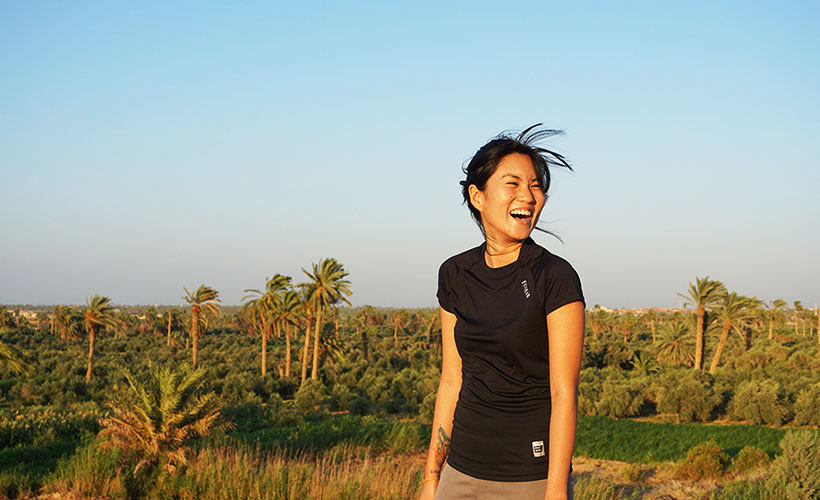
Mei Mei Chu, journalist
What are you doing to cope during self-isolation?
Working in news and following the minute details of the coronavirus pandemic globally – the death toll, the lost livelihoods, the struggles of healthcare professionals – is very overwhelming. I felt helpless especially in the first few weeks of the lockdown. To cope with the feeling of helplessness, I decided to help.
I partnered with an old client-turned-friend to raise funds for the General Hospital in my hometown. The funds collected from generous friends and family was enough to purchase respirators, PPE, and tools like disposable blades and tubes that were used in the COVID-19 ICU ward. That doctor was very grateful, and his little updates about receiving the equipment made me feel good on bad days.
I also followed the Caremongering Facebook group, where strangers work together to volunteer time and money to help those affected by the lockdown. The amount of kindness and selflessness in that group warms my heart.
How has the pandemic affected you?
The first effect of living modestly at home for two months and counting is the realisation of the number of unnecessary excesses in my life, like shopping and eating out daily, and the ability to live without it and still be happy.
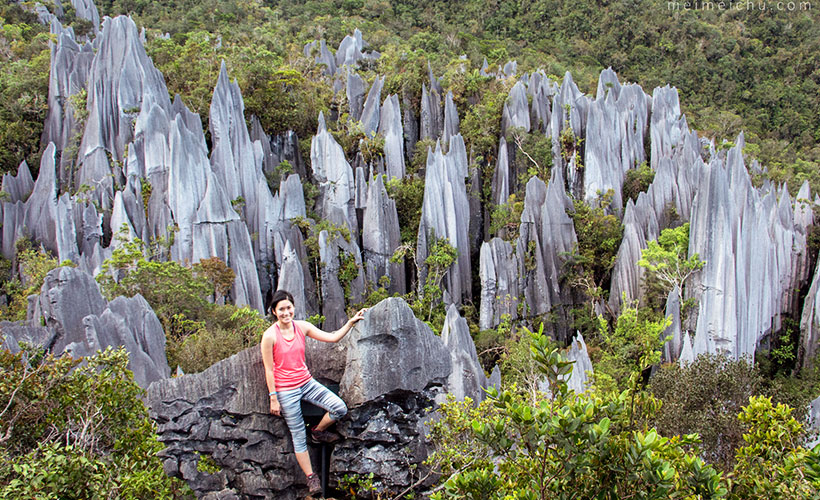
I’ve realised the importance of relationships with friends and family, and how big a difference one simple phone call can make. As an introvert, it has been fairly easy to get used to being isolated from the rest of the society, but as I grow more accustomed to being alone, I’ve also become increasingly anxious at the thought of having to socialise again when the lockdown is lifted. I fear I may have lost my ‘socialising’ muscle!
Where is the first place you want to travel to once travel bans have been lifted?
I had initially planned on spending my 30th birthday in June at the top of a mountain, maybe Everest Base Camp or Mount Kilimanjaro, but this is not possible anymore. Until a vaccine is found and the virus is truly controlled, I’d travel conservatively and cautiously.
But when the travel bans are lifted, I’d like to first go back to my favourite islands in my own country of Malaysia, to revisit old friends and old memories that still live on the island, and support my local communities.
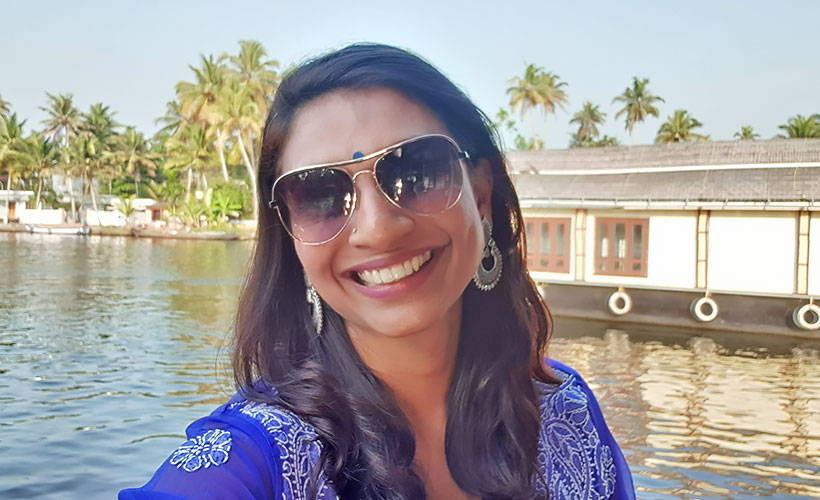
Asha Menon, entrepreneur
What is the situation like where you are?
I’m in Kuala Lumpur, Malaysia. We’re on a Conditional Movement Control Order until 9 June. It was tough in the first 40 days, when I wasn’t able to go on my daily walks/runs, or do my usual weekend outdoor activities like hiking/trekking. I was feeling the blues from not being out in nature. I missed the breeze touching my skin. It’s a lot better now, but my hope is for everyone to do their bit in abiding by the protocols when they’re out.
What are you doing to cope?
I’m using the downtime and stillness to explore inwards. I’m working on the completion of my first book. I am connecting with my tribe more often through video calls. I’m reaching out to people far away whom I don’t get much of a chance to stay connected with via text and phone calls to engage in deeper conversations.
One thing for sure, the bond with my daughter has developed into a profound level of connection and augmented our emotions to greater depths. I thoroughly enjoy the opportunity of being in the moment with her.
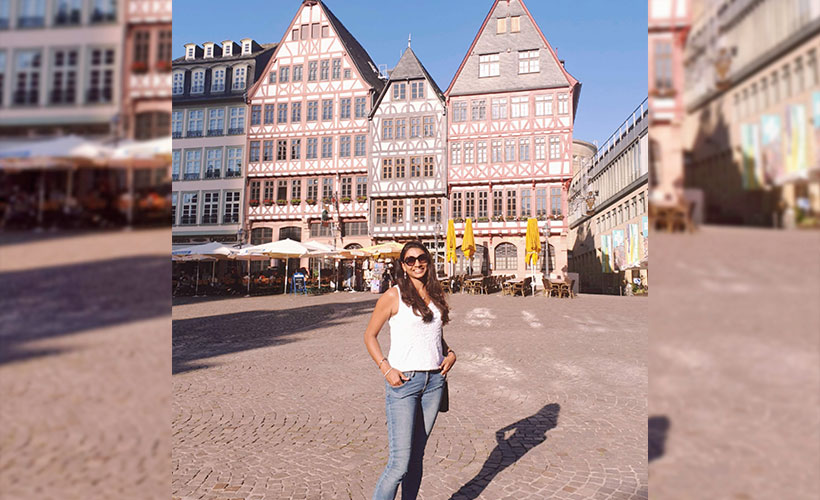
How has the pandemic affected you?
As a small business owner, I’m facing the financial brunt of uncertainty as clients are taking a more calculated/cautious approach in spending. I’m also having major wanderlust withdrawal. I miss walking down the aisle and listening to a voice say “Good afternoon ladies and gentlemen, this is your captain speaking…” Finally, I miss physical connection – I can’t wait to give and receive hugs!
Where is the first place you want to travel to next?
Sweden – to join a friend living on a farm and to try out the Workaway experience with my daughter.
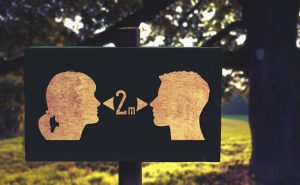 As the world embraces the new normal, what will this mean for the travel and tourism industry moving forward? Here are a few ways travel could change for us, post-pandemic: The ‘New Normal’ Travel Realities Brought By COVID-19
As the world embraces the new normal, what will this mean for the travel and tourism industry moving forward? Here are a few ways travel could change for us, post-pandemic: The ‘New Normal’ Travel Realities Brought By COVID-19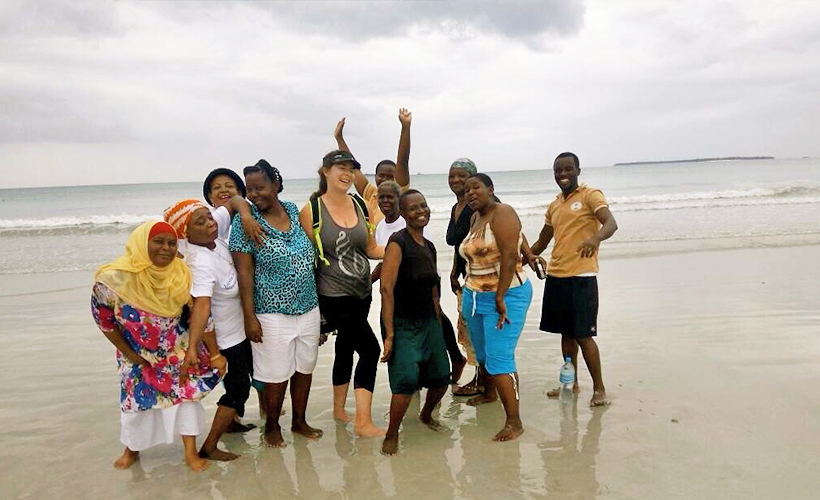
Claire McFarlane, founder of Footsteps To Inspire
Tell us about yourself.
I founded a non-profit called Footsteps To Inspire where I’m running over 3,500 kilometres of beach in 230 countries to peacefully end sexual violence. I share ways to heal and create change, and I empower others to speak out. I was born and raised in South Africa. I’ve been a global nomad the last few years, but currently, I’m in lockdown in Switzerland. Confinement started for me on 16 March. I had to be in quarantine for 14 days and then it was regular lockdown procedures. Confinement has started easing off in Switzerland since 11 May.
What is the situation like where you are?
My situation has been difficult because I found myself locked into a country where I don’t normally have accommodation. This was due to the rapid implementation of confinement measures and borders being shut off.
Once I was able to make sure my visa situation was sorted out and my 14 days of quarantine ended, I followed the Swiss measures for confinement. These measures were easier than other countries, and I was able to get outside for a few hours each day to exercise or buy groceries. It’s still complicated for me because my work involves extensive travel, and right now borders are closed and international travel is grounded.
What are you doing to cope?
Working a lot. I realised that with uncertainty comes clarity. It has been a time for a lot of introspection and asking myself questions about the goals of Footsteps To Inspire and my own life. Wellness is an essential part to finding balance during this very unstable time and I practice yoga every morning. Acceptance has also played a big part in getting through. There is a lot of wisdom in going with the flow.
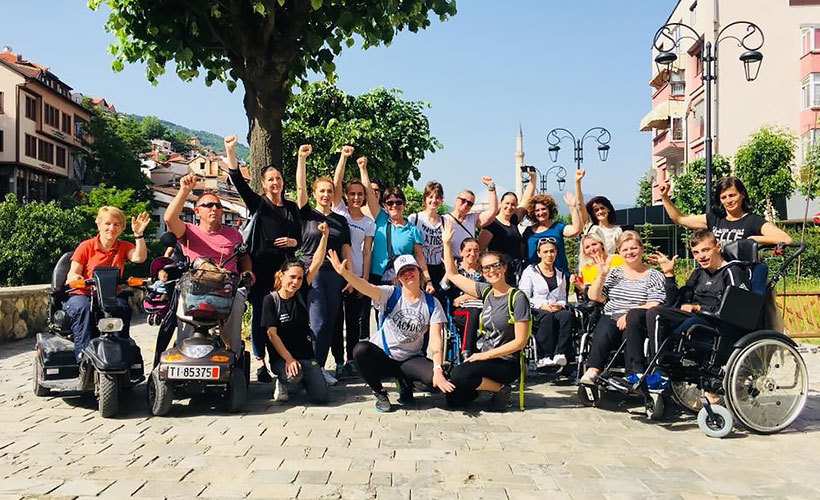
I’ve been able to find ways to keep Footsteps To Inspire alive despite not being able to travel. I started a Stay At Home Challenge and launched the first one on 25 April via Zoom. About 45 people from 17 countries joined me for the one-hour challenge in support of survivors of sexual violence. It was amazing.
How has the pandemic affected you?
Normally, I run 16 kilometres of beach in every country of the world. In February of this year, I had reached country 55, and the plan was to run in 20 more over the coming months. COVID-19 brought Footsteps To Inspire to a grinding halt. The at-home challenges have given me hope for the future of the project.
Where will you head to next?
My list is long. The day confinement started for me on 16 March, I was meant to board a flight to run in Tunisia. I had to cancel trips to Tunisia and all other countries up until now (Germany, Greece, Montenegro, Bulgaria, and Bosnia). I think the first place I will travel to once inter-country travel bans have lifted is Tunisia – for the beach run but also to have a one-week holiday at the beach to enjoy water sports and do nothing.
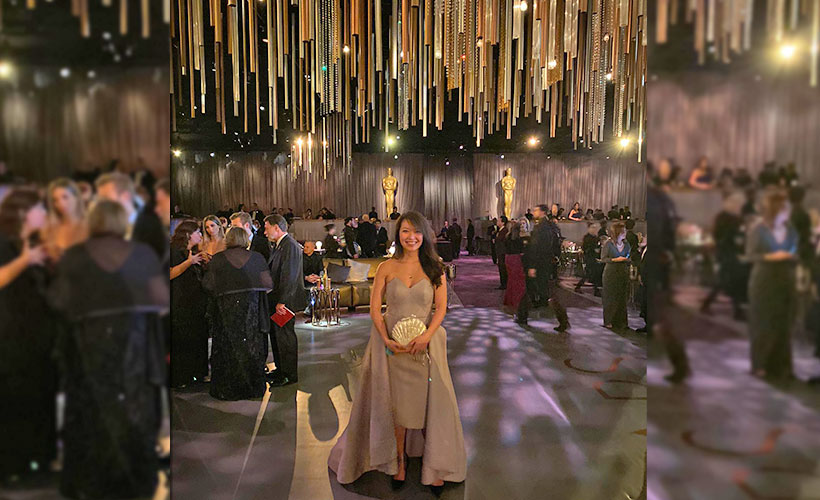
Adrienne Lee, Director of Global Impact for Tourism Cares
Tell us about yourself.
My name is Adrienne and I am the Director of Global Impact for Tourism Cares, a non-profit that unites the travel industry to support positive impact to help people and places thrive. I am from Toronto, Canada, and I’m currently at home in Toronto social distancing. We are still allowed to go out for essential services and daily exercise, but other than that I’ve been working remotely at home. We are entering Week 10 of social distancing measures.
What is the situation like where you are?
The situation remains positive. Anecdotal reports from local doctors suggest our area has done a great job flattening the curve and keeping emergency services available. I live in a region where “care-mongering” started, where community members have come together to strategise, and support more vulnerable populations (those that have immune deficiencies, the elderly, even those that have anxiety leaving their homes) receive care packages, groceries, food, and support.
What are you doing to cope?
Professionally, my team has been working diligently to make resources available for the industry. Last week, for National Travel and Tourism Week, we launched the Meaningful Travel Platform for free. This is a business-to-business tool and resource for all kinds of responsible and sustainable travel resources.
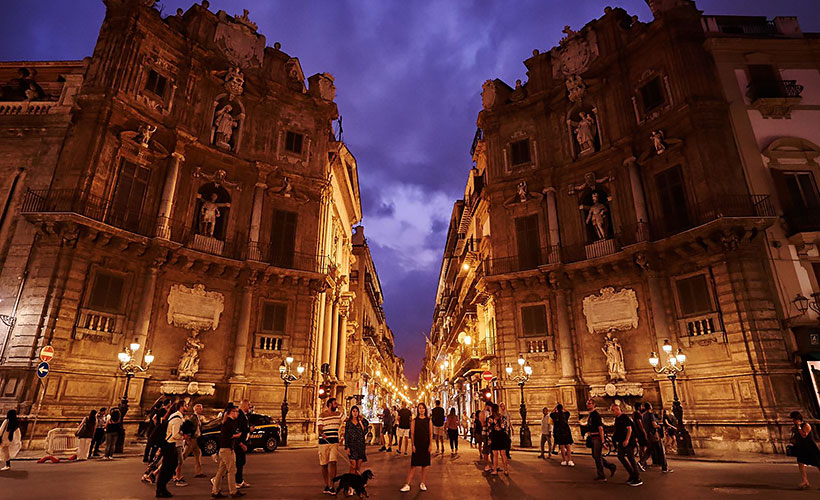
Personally, I have been enjoying daily virtual home workouts, exploring new recipes, hiking with my dog, and reading all the books that I left sitting on my shelf collecting dust! I just finished Pachinko by Min Jin Lee, a beautiful read that transports you through time and space.
How has the pandemic affected you?
I was used to working remotely prior to the pandemic, but this is not the same. This is work remotely DURING a pandemic and there are extra layers of stress, the unknown, and being inundated with news and updates. It takes a toll on your mind and body. I try to carve out space to be mindful and practise empathy, to gain perspective, and be cognizant that this is an unprecedented time that we have to take day by day.
Where is the first place you want to travel to?
Locally, to see my Mom and give her a hug. Globally, Colombia or Norway — two places I was supposed to travel to this year that had to be postponed.
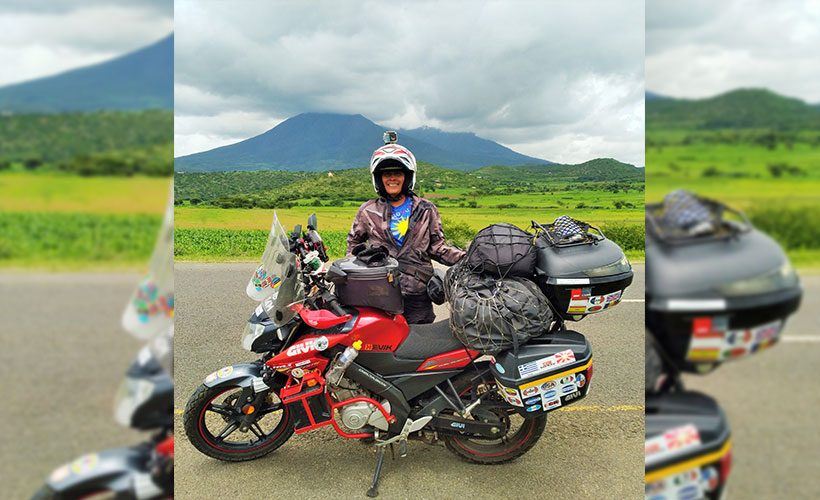
Anita Yusof, full-time nomad
Tell us about yourself.
My name is Anita Yusof. I’m an ex-lecturer. I opted for early retirement last December. Now I am a full-time nomad. I’m Malaysian, originally from Batu Pahat, Johor, but living in Ipoh. Currently, I’m at Pemba Island, Tanzania.
What is the situation like where you are?
I’ve been in isolation since 23 March. I’m in the midst of doing my solo Global Dream Ride 2, which began in Cape Town last December. I’ve been on the road since then, and managed to cover 14 countries in the African continent.
Surprisingly, Africa wasn’t as badly affected by COVID-19. Perhaps because these countries have had to deal with past pandemics such as Ebola and AIDS, so they are pretty prepared. Currently, Tanzania has about 300 active cases and 20 deaths. The country is not under lockdown, as the President said that more people will die of hunger (from not being able to work to earn a living) than from COVID-19 if the country locks down. Life is as usual here, but we practice social distancing and hand sanitising.
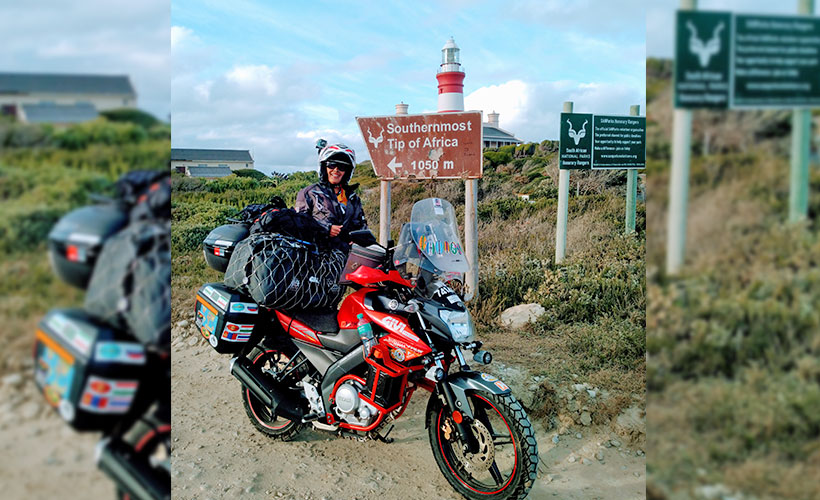
How has the pandemic affected you?
I was already in Ethiopia and on my way to Cairo, Egypt. As soon as WHO announced the pandemic, and perhaps from past experiences, African countries closed their borders even when most of them didn’t have any COVID-19 cases yet (except for Egypt, South Africa, and Nigeria). I was stuck in Ethiopia, not knowing what to do.
It was a very tense moment for me, as I was with my motorbike and my visa is about to expire. I had to leave Ethiopia, but what about my bike? Fortunately, I managed to get an extension from the Ethiopian customs to keep my bike in Ethiopia and I have a biker friend in Addis Ababa who let me store it at his place. Then, I took a flight out to Dar Es Salaam and later a ferry to this island. The reason why I opted to stay here is that Malaysians are allowed up to 90 days stay in Tanzania and can apply for an extension if needed.
Where to next?
My bike is waiting for me in Addis Ababa. Once the border reopens, I’ll continue my ride to Cairo, and along the Global Dream Ride 2 route which I had planned.
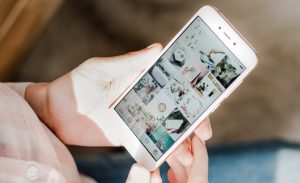 Since we can’t pack our bags for an adventure any further than the local grocery store just yet, we figured we’d keep your wandering minds and thumbs inspired with some of our favourite Instagram accounts!: 8 Thumb Travel Worthy Instagram Accounts To Feed Your Wanderlust
Since we can’t pack our bags for an adventure any further than the local grocery store just yet, we figured we’d keep your wandering minds and thumbs inspired with some of our favourite Instagram accounts!: 8 Thumb Travel Worthy Instagram Accounts To Feed Your Wanderlust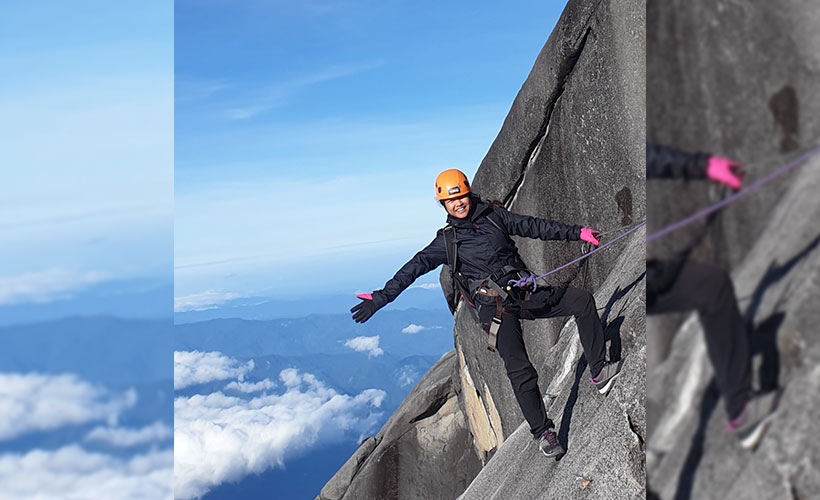
Khairun Nisa Zabidi, climate diplomacy
What do you do for a living?
I work in climate diplomacy managing part of the UK government’s International Climate Fund (ICF) investments via a programme called the UK PACT (Partnerships for Accelerated Climate Transitions) here in Malaysia.
Are you currently in isolation/quarantine?
I’m from Subang Jaya, Malaysia and am also here currently. I was quarantined for two weeks at the beginning of the Movement Control Order when I returned from a business trip to Japan and the UK.
What is the situation like where you are?
Things are good – I’ve been physically isolating and for over 10 weeks now out of concern for everyone’s collective wellbeing. I have now moved to working from home full-time and doubling up as an eccentric school teacher to my six- and eight-year-old kids, given the school closures.
People are generally respectful of the Movement Control Order rules and many in my social circles seem to have relative security with their incomes and jobs. But I am concerned about those without the social safety net I have – particularly foreigners who live on daily wages. I think about the lady I buy nasi lemak from. She’s Indonesian and operates out of a stall opposite Empire Subang. I haven’t seen her despite the loosening restrictions. I hope she’s okay.
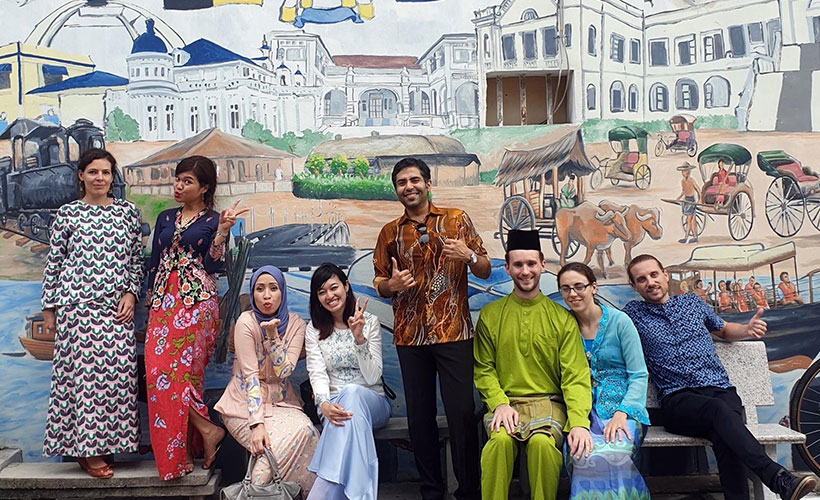
How has the pandemic affected you?
I experienced some deep grief in the early weeks of lockdown, cycling between the deep sense of loss from losing our freedom of movement and relief over not needing to keep up appearances. I’ve had some existential moments, including over Eid, wondering how much we are willing to give up in exchange for the safety of the few; asking myself whether I care more about quantity over the quality of life, particularly with the possibility that a vaccine for this virus may never be found. I’ve very much valued this time and space to think – I don’t think we have gotten enough of that in our previous hustle and bustle running the rat race.
As a single parent, I have really been enjoying all the time with my kids. Now we get to snuggle more in the mornings without the school/office rush, they come in for random hugs whenever they want in between my work calls, and I am teaching them lots of life skills like cleaning, laundry, and doing the dishes. We have movie nights and play board games. It’s been lovely.
A lot of my travel plans are now also shelved indefinitely. I had meant to travel to Bali for my birthday in April and attend a wedding anniversary in Italy in September. I was also planning to do more work on forest governance was looking to spend some time in Borneo and exploring the Central Forest Spine as part of my work investing in Nature-Based Solutions on climate, but that’s now up in the air.
Where are you going once travel bans are lifted?
There’s a place called Rumah Hijau on Tioman. If we’ll be permanently working remotely, I would love to spend some months out there and sandbox some ideas on resilience, food security, and sustainable tourism models.
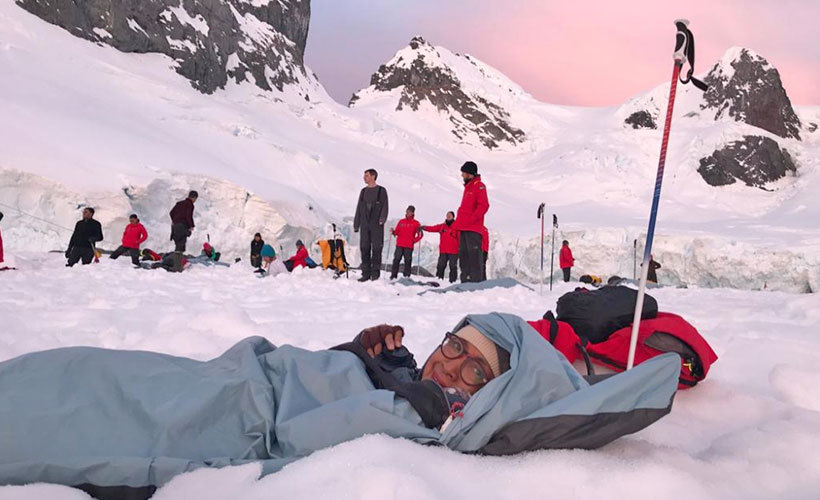
Hermandari Kartowisastro, photographer and retiree
Are you currently in isolation/quarantine?
I’m Indonesian and have been living in Jakarta since 1972. We’re currently not in isolation or quarantine. We just have to stay home following the state regulations. As I’m already 76, I’m more susceptible to the virus.
What is the situation like there?
Not great; the numbers of new positive COVID-19 is still going up and down. The people are not disciplined in following health protocols. I have been out twice in these two months – to the bank and to take a rapid test.
What are you doing to cope?
Frankly speaking, I’m fine. Finally, I have time to go through my photos, sort through them, and edit them. There are so many webinars to follow too; especially in photography. I’ve learned a lot. I have done two presentations via Zoom organised by Leica Indonesia and Focus Nusantara (a big Camera Shop in Indonesia). I am grateful that I have my hobby, photography.
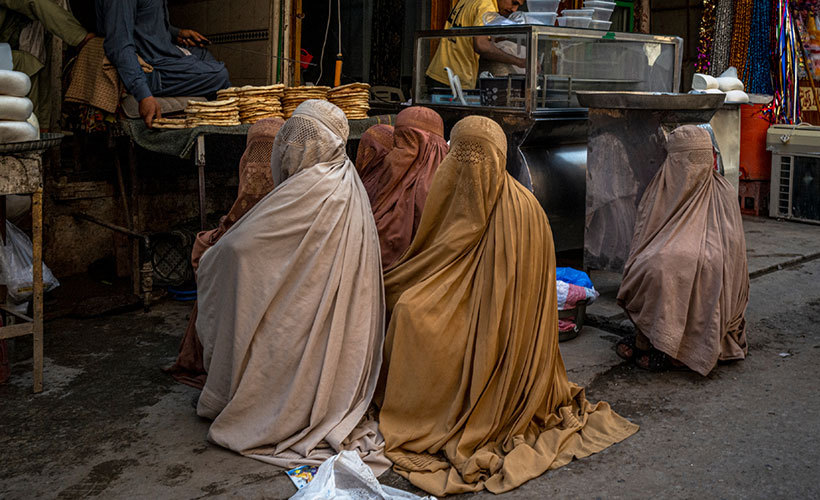
I can sleep longer now too, and do my Zen Qi Meditation and aerobics regularly. I just want to remain positive, and together with friends and institutions, collect donations to support the needy.
How has the pandemic affected you?
It’s definitely going to be tough for any country to recover economically. We have to adapt to a new way of living. One good thing is that nature is recuperating from the greed and exploitation of humans.
Where to once this is over?
A difficult question to answer. I will travel locally first; there are so many places I haven’t been to.
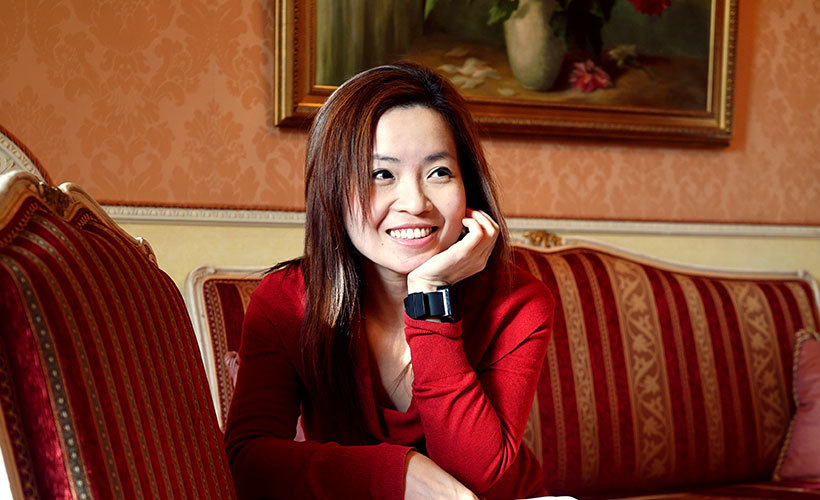
Mandy Tay, business owner
What’s it like where you are?
I’m the owner of a creative business where I edit trailers and shoot commercials on. Currently, I am in Singapore, where I was born and raised. We have just relaxed some of the restrictions like the ban of cakes, which led to the island-wide selling out of flour and proportionate rise of home bakers.
How has the pandemic affected you?
Earlier this May, I celebrated my birthday. Usually, I travel to a new country on my birthday, but by the time I started to plan for this year in March, it was already too late. Most of the borders had started to close. I whimpered about my broken tradition.
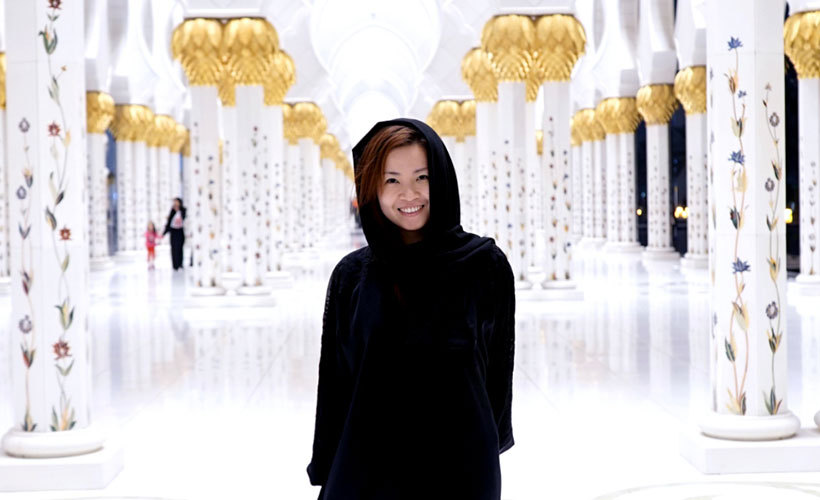
But staying home meant that my friends finally knew where to find me on my birthday. And so they did, delivering everything from flowers to any form of pastries that resembled a cake. This was followed by round-the-clock Zoom calls from the Middle East, Europe, Mexico, and then LA. I’ve never seen so many of my favourite faces all in one day. I’m still in shock but this has turned out to be, unexpectedly, the best birthday ever.


